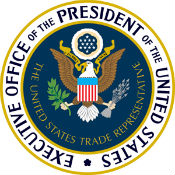 Every year the Office of the United States Trade Representative (USTR) publishes its Special 301 Report highlighting countries that aren’t doing enough to protect U.S. intellectual property rights.
Every year the Office of the United States Trade Representative (USTR) publishes its Special 301 Report highlighting countries that aren’t doing enough to protect U.S. intellectual property rights.
In 2016 the report sticks to a tried and tested format, with countries such as China, Russia, India and Ukraine all making the Priority List once again. However, just as the USTR wasn’t afraid to place Canada on the Watch List several years ago, this year it has added another ally.
Situated in the heart of Europe (although not part of the Union), Switzerland has long-standing ties with the United States and has acted as the protecting power between the U.S. and former foes Iran and Cuba. Nevertheless, when it comes to protecting copyright the USTR didn’t hesitate to add Switzerland to the Watch List in 2016.
“Generally speaking, Switzerland broadly provides high-levels of IPR protection and enforcement in its territory. Switzerland makes important contributions to promoting such protection and enforcement internationally, including in bilateral and multilateral contexts, which are welcomed by the United States,” the USTR writes in its assessment.
“However, the decision to place Switzerland on the Watch List this year is premised on U.S. concerns regarding specific difficulties in Switzerland’s system of online copyright protection and enforcement.”
Although the USTR doesn’t go into much detail, the key problem that the United States has with Switzerland surrounds the so-called ‘Logistep Decision‘. Anti-piracy outfit Logistep built a reputation in the latter half of the last decade for providing tracking services for copyright trolls operating in Europe and the UK. However, things didn’t go entirely to plan.
In 2010 following several years of legal action, the Swiss Federal Supreme Court ordered Logistep to stop harvesting the IP addresses of file-sharers. The Court ruled that IP addresses amount to private data, a decision that effectively outlawed the tracking of file-sharers in privacy-conscious Switzerland.
This apparent lack of protection for rightsholders is unacceptable, the USTR says.
“Six years have elapsed since the issuance of a decision by the Swiss Federal Supreme Court, which has been implemented to essentially deprive copyright holders in Switzerland of the means to enforce their rights against online infringers; enforcement is a critical element of providing meaningful IPR protection,” the report reads.
According to the USTR, since 2010 Switzerland has also become an increasingly popular host country for many pirate sites, a position highlighted in the 2015 Notorious Markets review.
While the USTR says that it welcomes the steps being taken by Switzerland to address its concerns, the tone of the United States suggests there is somewhat of a mountain to climb before the country gets a clean bill of health.
“[M]ore remains to be done and the United States continues to encourage the Swiss government to move forward expeditiously with concrete and effective measures that address copyright piracy in an appropriate and effective manner, including through legislation, administrative action, consumer awareness, public education, and voluntary stakeholder initiatives,” the USTR writes.
Canada
After being on the Watch List for some time now, Canada did not do enough in 2015 to get back into favor with the U.S.
While welcoming Canada’s amendment to its Copyright Act which extended sound recording protection to 70 years from date of recording, the U.S. has little other praise for its northern neighbor.
“[T]he United States continues to urge Canada to fully implement its commitments pursuant to the WIPO Internet Treaties and to continue to address the challenges of copyright piracy in the digital age,” the USTR writes.
Going on to condemn Canada on everything from counterfeit goods to pharmaceuticals and patents, there was not even a passing reference in the report to the long called for notice-and-notice anti-filesharing regime implemented by Canada in 2015.
Other countries with Internet piracy issues
India is criticized on a number of fronts, with the USTR calling for the implementation of notice-and-takedown procedures, statutory damages for infringement and the introduction of effective anti-camcording legislation.
Despite noting that anti-piracy legislation is evolving in Russia, the USTR saw no reason to take the country off the Priority List in 2016. Interestingly the USTR’s report praises the fact that “a Russian court shut down Rutracker.org”, when in fact the site was only blocked and remains fully operational today. Nevertheless, it appears that court orders are not enough for the United States.
“Issuing injunctions against infringing websites does not address the root of the problem; Russia should be investigating and prosecuting the operators of such sites. The overall number of raids, criminal charges, and convictions have declined in recent years,” the report reads.
Finally, Ukraine remains on the Priority List in 2016.
“With respect to improving the government’s response to online infringement, several attempts at legislative reform appear to have stalled,” the USTR notes.
“As highlighted in the 2015 Notorious Markets List, Ukraine continues to host some of the largest pirate sites in the world serving IP infringing content to a global audience.”
The full 2016 Special 301 Report can be downloaded here (pdf)





